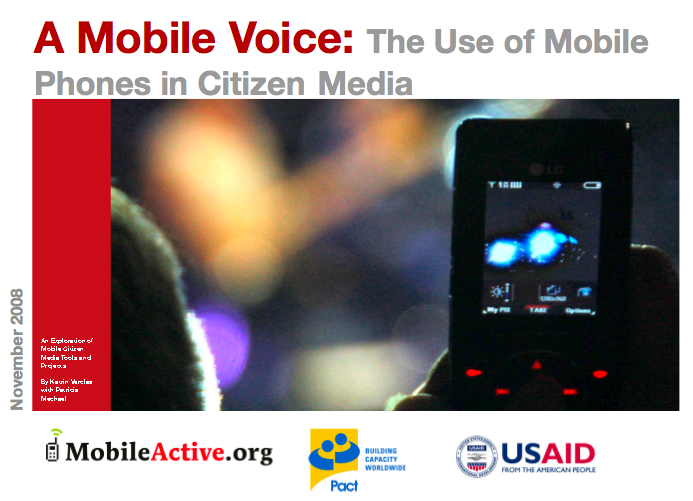Originally published on the PBS blog Mediashift.
Mobile phones are everywhere. They have long surpassed the Internet in number of users, and in some parts of the world, mobile phones now rival television in reach. The mobile tech economy (at least until recently) was booming with telcoms and handset manufacturers fiercely competing in emerging markets, and software giants like Microsoft and Google entering the mobile industry in earnest. There are now somewhere between 3.5 billion and 4 billion mobile subscriptions worldwide, with the fastest growth happening in developing countries.









